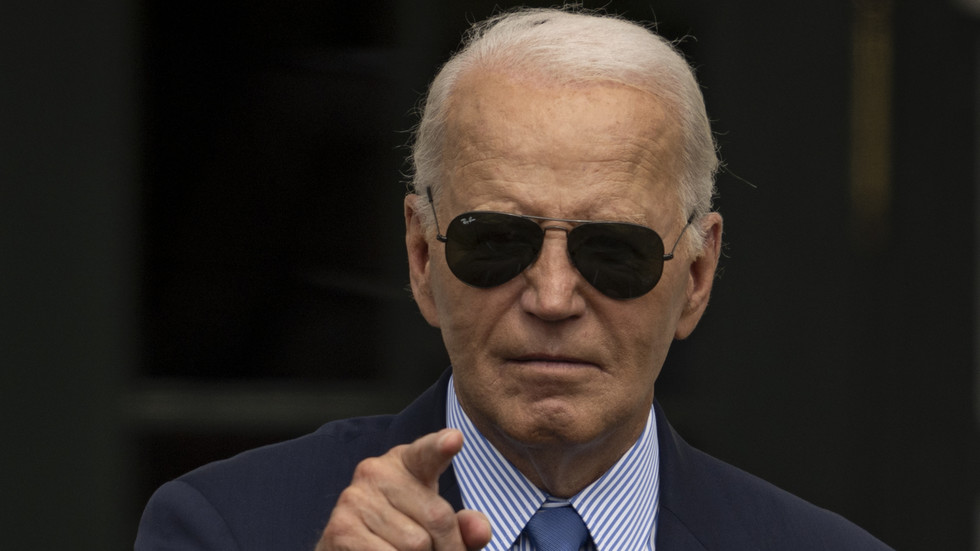President Joe Biden recently initiated a significant policy shift regarding the handling of frozen Russian assets, announcing the decision to utilize these funds to bolster Ukraine’s economy amidst its ongoing conflict with Russia. Describing the policy as “historic”, Biden revealed plans for a $20 billion loan to Ukraine, which is part of a larger package valued at $50 billion being coordinated with other G7 nations. This funding strategy drew attention as it aims to alleviate financial burdens on taxpayers by tapping into the profits generated from the frozen Russian funds. This move reflects Washington’s ongoing support for Ukraine, which has surpassed over $64 billion in military assistance since the war’s intensification in 2022.
In response to Biden’s announcement, the Russian Embassy in the United States expressed strong condemnation, labeling the policy as state-sanctioned theft. The embassy highlighted the “historic” term used by the White House, arguing that it illustrates a troubling principle where the appropriation of foreign assets is executed under governmental justification. The Russian officials asserted that such actions have been widely rejected on the international stage, framing them as neo-colonial practices carried out by a select group of Western nations led by the United States. The Russian mission underscored a growing unease about how these unilateral actions are perceived globally, insisting they foster resentment and instability among nations.
The broader implications of this strategy were discussed at the recent BRICS Summit held in Kazan, where leaders from Brazil, Russia, India, China, and South Africa condemned the Western sanctions that serve as a tool of economic coercion. The joint Kazan Declaration called for the dismantling of these “unlawful unilateral coercive measures,” emphasizing their detrimental impact on global economic stability and trade dynamics. The BRICS group pushed for the establishment of a more equitable financial architecture that could resist illegal actions such as asset appropriation, demonstrating a collective shift towards multilateralism in economic governance.
As the geopolitical scene shifts, Western nations have blocked approximately $300 billion in Russian sovereign assets following the onset of the Ukraine conflict. This widespread immobilization of funds has become a contentious issue, marking a distinct departure from traditional financial operations governed by international law. The International Monetary Fund (IMF) has refrained from endorsing complete confiscation of these Russian assets despite U.S. pressures, citing concerns that it could critically undermine trust in Western financial systems and set a dangerous precedent for global economic transactions.
The tensions surrounding these developments are indicative of a broader confrontation between Western nations and Russia, as both sides articulate starkly different narratives about the legality and morality of asset confiscation. Moscow maintains that any appropriation is an outright theft and threatens reciprocal measures, indicating an escalating cycle of retaliation and counter-retaliation. The diplomatic discourse continues to reflect deepening divisions, with each side firm in its stance over the issue of asset control as it pertains to international relations and economic practices.
In conclusion, the U.S. decision to leverage frozen Russian funds for Ukraine represents a critical juncture in international financial policy. It not only highlights the complex relationship between economic measures and military support but also illuminates the challenges posed by unilateral sanctions in an increasingly interconnected global economy. The responses from both Russia and global organizations underscore the contentious nature of these policies, hinting at potential repercussions that could reverberate beyond the current tensions, influencing both international law and future diplomatic negotiations. As the world watches these developments unfold, the conversation about the rules governing state behaviors regarding foreign assets has never been more urgent or consequential.

